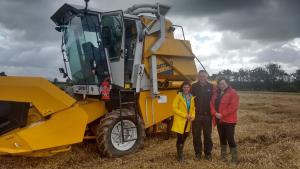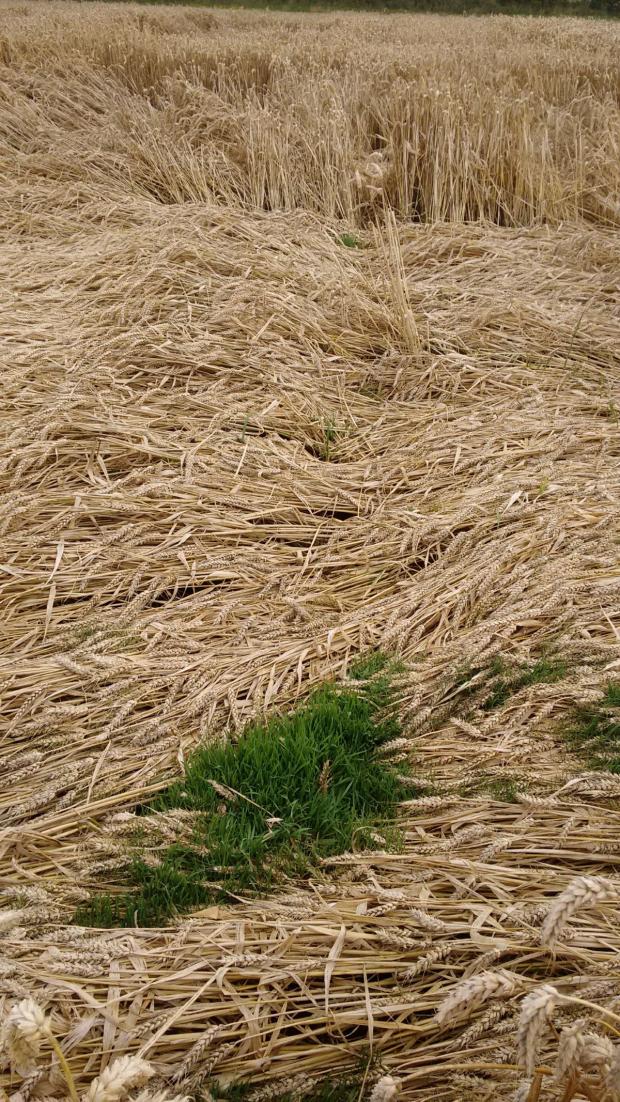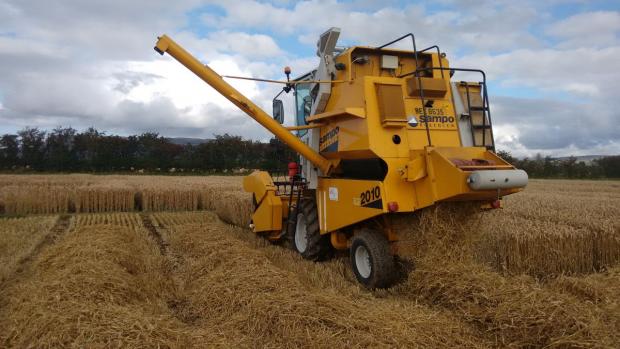Dr Lisa Black, Cereal Project leader at the Agri-Food and Biosciences Institute, recently featured on the popular BBC 1 Home Ground programme, showcasing how AFBI works with, and supports local cereal producers.

The programme emphasised the crucial role of AFBI science in enhancing the competitiveness of local food production and highlighted some of AFBI’s work over the past 20 years.

The cereal sector in Northern Ireland is important even though it is relatively small. It is one of the most progressive and innovative sectors in our local agri-food industry and many livestock farmers also grow cereals on-farm to supplement feed for their animals. A small number of arable growers focus primarily on cereal production and their yield returns are amongst the best in the UK and Ireland. Over the past 3 years, the AFBI winter barley trial based at Limavady produced the highest yield in the whole of the UK trialling system, and the 2017 winter wheat trial was in the top five yielding trials across the UK.
One reason why yield potential is so high in Northern Ireland is the cool summers with plenty of light and no shortage of water. This means our growing season is extended compared with more easterly and southerly parts of the UK, thereby increasing the opportunity for our crops to produce greater yield. However these weather conditions mean that NI is also a challenging environment for growing cereals, as demonstrated in 2017. High rainfall means that crops are subjected to greater disease pressure from wet-weather splash-dispersed fungal diseases such as Septoria in wheat and Rhynchosporium in barley. The wet blustery weather also means that the ability of crops to stand is well tested. Lodging in wheat and brackling in barley are two problems faced by cereal growers. Increasingly extreme autumn weather in NI exacerbates straw damage and delays harvesting of cereal crops. It is because of these testing and challenging growing conditions that NI is very well placed for testing varieties. Therefore NI trials are a highly-valued part of the UK trialling system because they produce good discrimination between varieties with regard to resistance to disease and straw damage and relative ripening over an extended growing season. The trials at Limavady were no exception this year with severe lodging in weak-strawed varieties where plant growth regulators had not been applied. Results from harvest of the 2017 variety trials, including those from Northern Ireland, can be viewed on the AHDB website

CIVYL (Cereal Improvement through Variety choice and understanding Yield Limitations) (also DAFM funded) is a project AFBI is involved in with Teagasc. This project is studying what limits yield in wheat and barley crops in the island of Ireland. AFBI has been involved in carrying out a number of trials that have contributed to Winter wheat and Spring barley growing guides and has also been responsible for producing the largest database on cereal variety performance in the UK and Ireland to date.
More recently, AFBI has begun a new project on soil health in NI. This project, which is funded by DAERA, is investigating soil chemical, physical and biological characteristics in grassland and arable soils. An important aspect is the impact of organic manures on soil health and on crop/grass yields. This multi-disciplinary cross-cutting project is an example of how AFBI arable research is using a holistic, integrated approach to answer questions relevant to the mixed and diverse arable farming systems in Northern Ireland.
Further information on cereal varieties and AFBI arable research is available from contacting info@afbini.gov.uk.
Notes to editors:
AFBI carries out high quality technology research and development, statutory, analytical, and diagnostic testing functions for DAERA and other Government departments, public bodies and commercial companies.
AFBI's Vision “Advancing the Local and Global Agri-Food Sectors Through Scientific Excellence”.
All media enquiries to AFBI Press Office
Latest news
- Resilience, Sustainability and Innovation survey 03 March 2025
- AFBI led Project Launched to Promote Sustainable Dairy Farming across the UK 18 February 2025
- UK Project Launched to Promote Sustainable Dairy Farming 11 February 2025
- International Day of Women and Girls in Science 11 February 2025
